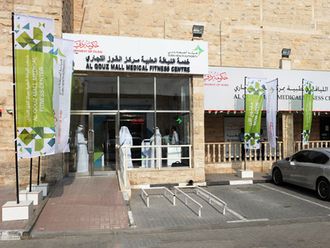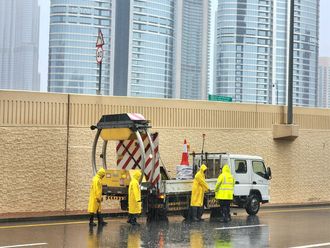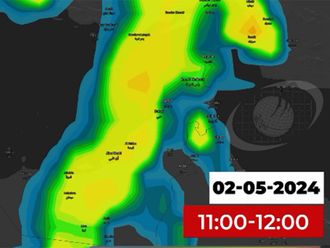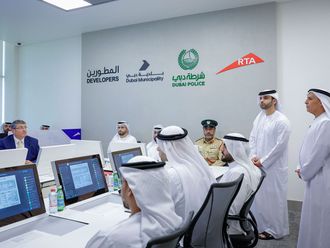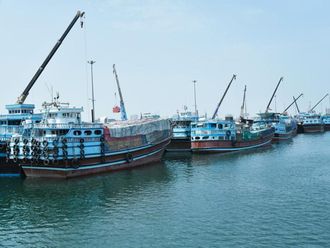Abu Dhabi: The UAE government is to issue a federal law on crisis and emergency management within a few days, a senior official announced yesterday.
The law will be a step towards ensuring the country is prepared to face natural or man-made crises such as pandemic diseases, earthquakes, floods, terrorist attacks and wars.
"The draft of the law governing crisis and emergency management is ready and is in its final stages of being approved from concerned authorities, before it will be made public," said Mohammad Khalfan Al Rumaithi, general manager of the National Crisis and Emergency Management Authority (NCEMA).
Training
Over the next five years, as many as 15,000 residents — both nationals and expatriates — will be trained to be volunteers in the face of an emergency.
Established two years ago, NCEMA, which drafted the law, is the government body in charge of managing and coordinating all efforts related to crises and emergencies.
The law will outline the responsibilities of federal and local bodies when a situation emerges, and thus be crucial in organising efforts.
"To facilitate exchanges of information and ensure cooperation, all concerned federal and local bodies will be linked electronically," he said.
Work on the e-links will begin soon after the law is issued, he added.
He noted that the draft law is the result of keenness of the country's leadership to protect the lives and properties of the public.
"It will lay the legal foundation to deal with emergencies and crisis in an effective and prompt manner."
A group of legal experts did a study of similar laws across the world, before deriving the framework most suited to the UAE.
"Dealing with crisis has many stages: prevention, preparedness, planning and exercises, dealing with [the] crisis and finally returning the situation to normalcy."
Al Rumaithi was speaking on the sidelines of the Crisis and Emergency Management Conference 2010 (CEMC), which began yesterday.
H1N1
NCEMA has been able to achieve a fair amount of success in coordinating various stakeholders in case of emergencies, according to Al Rumaithi.
"For instance, response to the H1N1 pandemic involved 13 organisations. Now we can proudly say that the UAE was one of the few countries that dealt with the situation efficiently."
Several awareness programmes were organised, alongside the coordination of efforts locally and internationally, he said. "The UAE was one of first five countries that provided one million vaccine doses in a short period of time, and soon the number will go up to two million."
Community resilience is key
Disasters, both natural and man-made, will continue to occur but preparedness and building of community resilience is the key, emergency management experts have said.
"Disasters will continue to occur. They do not respect borders, or holidays or vulnerabilities and play no favourites. The job of emergency services worldwide is to be prepared," said Jason McNamara, Chief of Staff of the United States Federal Emergency Management Agency (Fema), part of the Homeland Security Department.
Emergency services must ensure preparedness to help alleviate suffering, as the safety and well being of civilians is the top priority for all governments, he said.
McNamara was speaking at the Crisis and Emergency Management Conference 2010 (CEMC), which began yesterday.
He said that citizens play a much more significant role than recognised. "Often during crisis, family, friends, co-workers and neighbours conduct preliminary search and rescue, deliver initial care and assist in evacuation well before professional emergency care arrives."
Hence, authorities need to strengthen ties with community organisations such as neighbourhood associations, trade or ethnic groups and seek the broadest level of cooperation. "This needs to be done much before the crisis hits," he added.


